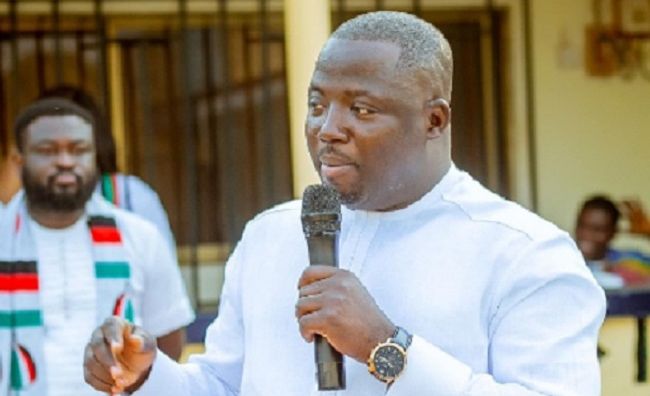The upcoming Akwatia by-election has become a focal point of political contention in Ghana, with Mustapha Gbande, Deputy General Secretary of the ruling National Democratic Congress (NDC), expressing a desire for the opposition New Patriotic Party (NPP) to lose all its remaining parliamentary seats. Gbande frames this aspiration not as mere political maneuvering, but as a necessary consequence for what he characterizes as the NPP’s detrimental governance. He argues that the Akwatia seat, specifically, holds symbolic weight, representing a potential referendum on the NPP’s performance and a chance for voters to express their dissatisfaction. Gbande’s pronouncements underscore the deep political divisions within Ghana and the high stakes attached to this particular by-election.
Gbande’s argument centers on the idea that the NPP’s governance has had a negative impact on Ghana, effects which he claims are particularly evident in the Volta and Eastern Regions, but resonate throughout the country. This negative impact, he asserts, warrants a strong electoral rebuke. He views a potential NDC victory in Akwatia as a symbolic punishment for the NPP’s alleged mismanagement and disregard for the well-being of Ghanaians. His statements reflect a broader narrative within the NDC that positions the party as the protector of the people against the perceived excesses and failures of the NPP.
The intensity of Gbande’s rhetoric – wishing for the complete annihilation of the NPP’s parliamentary presence – underscores the depth of the political rivalry between the two parties. He attempts to justify this extreme stance by portraying the NPP’s governance as not just ineffective, but actively harmful to the nation. This narrative seeks to mobilize NDC supporters and potentially sway undecided voters by painting a stark contrast between the two parties, framing the NDC as the only viable option for a better future for Ghana.
Gbande’s assertions also highlight the significance of regional politics in Ghana. By specifically mentioning the Volta and Eastern Regions, he appeals to regional identities and sentiments, suggesting that these areas have been particularly affected by the NPP’s policies. This strategy aims to solidify support within these regions and frame the by-election as a fight for regional interests as much as a national contest. This tactic of linking national politics to regional concerns is a common feature of Ghanaian political discourse, reflecting the complex interplay of national and regional identities within the country.
The focus on the Akwatia seat transforms the by-election from a localized contest into a symbolic battleground for broader national issues. Gbande’s pronouncements elevate the stakes of the election, framing it not merely as a competition for one parliamentary seat, but as a judgment on the NPP’s overall governance. This rhetoric aims to mobilize voters and increase participation, potentially transforming a relatively minor election into a major indicator of national political sentiment.
The Akwatia by-election, triggered by the untimely death of NPP MP Ernest Yaw Kumi after only six months in office, has become a stage for the NDC to directly challenge the NPP’s legitimacy and performance. The NDC, fielding Lawyer Bernard Bediako Baidoo against the NPP’s Solomon Kwame Asumadu, CEO of Owuo Mining Company, sees this election as an opportunity to not only gain a parliamentary seat but also to deliver a powerful message of disapproval to the NPP. Gbande’s statements reflect the NDC’s broader strategy of portraying themselves as the champions of the people against the perceived failings of the NPP government. The outcome of this by-election will undoubtedly have significant implications for the political landscape of Ghana, potentially influencing the trajectory of the upcoming general elections.


